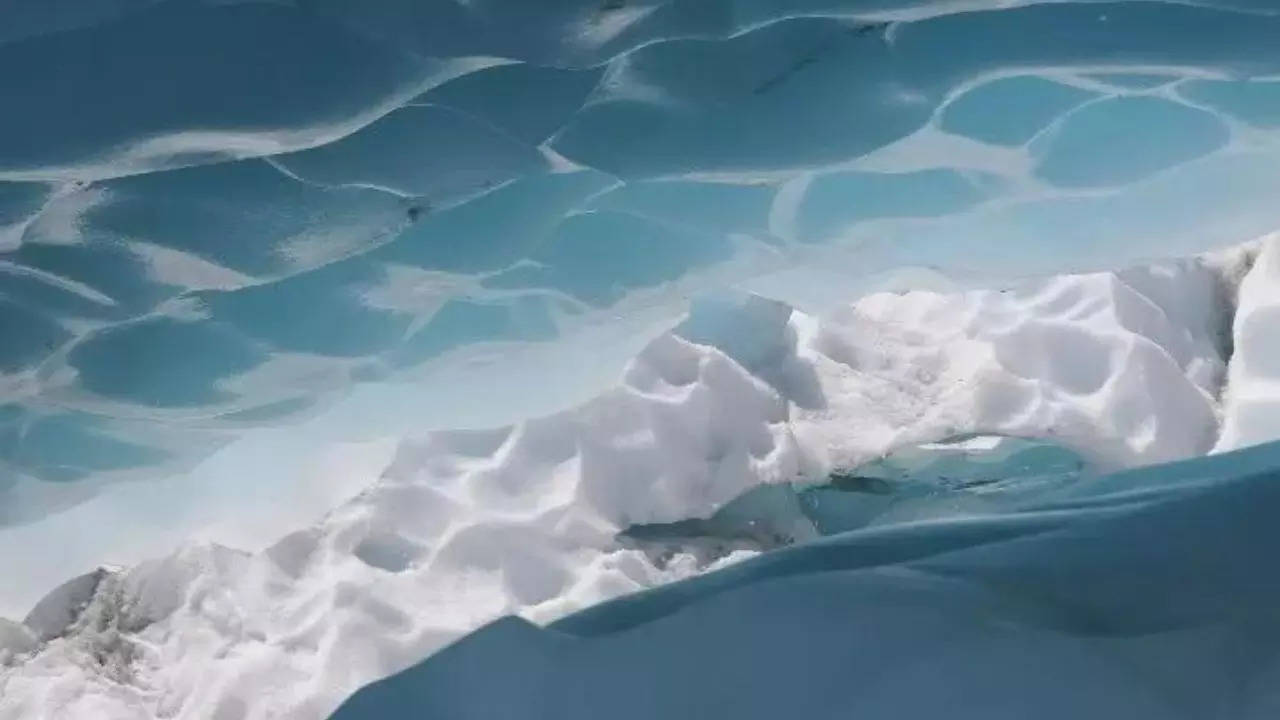DUBAI: The world is in danger of surpassing the five vital limits crucial for life on Earth due to current warming levels, a team of 200 scientists warned in a critical report released at the UN climate conference here on Wednesday. Released at the International Climate Conference (COP28) in Dubai, the “Global Tipping Points” report is the most thorough assessment ever done on the boundaries of natural systems, according to the scientists.
It identifies 26 tipping points, with five critical ones, like the cryosphere, already at risk due to current levels of global warming.
According to the report, the five major tipping points are the Greenland and West Antarctic Ice Sheets, the North Atlantic subpolar Gyre Circulation, warm-water coral reefs and some permafrost regions.
“These tipping points pose threats of a magnitude that has never been faced before by humanity,” said Prof. Tim Lenon, lead author and chair of Climate Change and Earth System Science at the University of Exeter, UK.
On a positive note, the report highlights potential tipping points in social progress, such as the growth of renewable energy.
Dr Steve Smith, at the University of Exeter, noted that just as there are negative tipping points, positive ones can reinforce each other.
“For example, as we cross the tipping point that sees electric vehicles become the dominant form of road transport, battery technology continues to get better and cheaper,” he said.
Manjana Milkoreit, governance lead research fellow at the University of Oslo, Norway, said, “The window to prevent the breaching of tipping efforts will close as soon as we pass 1.5 degrees Celsius.”
Negotiators at the climate talks are discussing ways to address fossil fuel burning, the primary cause of global warming.
Milkoreit stressed that even achieving net-zero emissions by mid-century won’t prevent surpassing these critical thresholds.
“The world needs a step change in mitigation efforts and a deliberate and active phaseout of fossil fuels,” she said.
Commenting on the report, Izabella Koziell from the Kathmandu-based International Centre for Integrated Mountain Development (ICIMOD) said that early tipping points in Asia’s mountain glaciers are already causing landslides, floods, erratic weather, and extreme conditions.
ICIMOD is an intergovernmental institution that works to promote sustainable mountain development in the Hindu Kush Himalaya, the world’s third-largest storage of frozen water.
It identifies 26 tipping points, with five critical ones, like the cryosphere, already at risk due to current levels of global warming.
According to the report, the five major tipping points are the Greenland and West Antarctic Ice Sheets, the North Atlantic subpolar Gyre Circulation, warm-water coral reefs and some permafrost regions.
“These tipping points pose threats of a magnitude that has never been faced before by humanity,” said Prof. Tim Lenon, lead author and chair of Climate Change and Earth System Science at the University of Exeter, UK.
On a positive note, the report highlights potential tipping points in social progress, such as the growth of renewable energy.
Dr Steve Smith, at the University of Exeter, noted that just as there are negative tipping points, positive ones can reinforce each other.
“For example, as we cross the tipping point that sees electric vehicles become the dominant form of road transport, battery technology continues to get better and cheaper,” he said.
Manjana Milkoreit, governance lead research fellow at the University of Oslo, Norway, said, “The window to prevent the breaching of tipping efforts will close as soon as we pass 1.5 degrees Celsius.”
Negotiators at the climate talks are discussing ways to address fossil fuel burning, the primary cause of global warming.
Milkoreit stressed that even achieving net-zero emissions by mid-century won’t prevent surpassing these critical thresholds.
“The world needs a step change in mitigation efforts and a deliberate and active phaseout of fossil fuels,” she said.
Commenting on the report, Izabella Koziell from the Kathmandu-based International Centre for Integrated Mountain Development (ICIMOD) said that early tipping points in Asia’s mountain glaciers are already causing landslides, floods, erratic weather, and extreme conditions.
ICIMOD is an intergovernmental institution that works to promote sustainable mountain development in the Hindu Kush Himalaya, the world’s third-largest storage of frozen water.
Denial of responsibility! Swift Telecast is an automatic aggregator of the all world’s media. In each content, the hyperlink to the primary source is specified. All trademarks belong to their rightful owners, all materials to their authors. If you are the owner of the content and do not want us to publish your materials, please contact us by email – swifttelecast.com. The content will be deleted within 24 hours.


